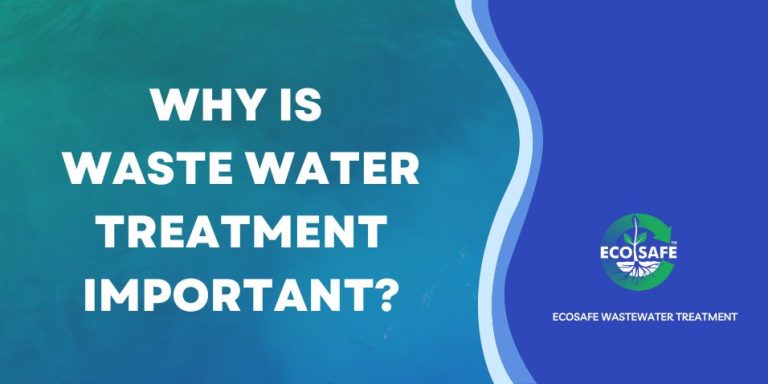The smart Trick of Reclaim Waste That Nobody is Discussing
The smart Trick of Reclaim Waste That Nobody is Discussing
Blog Article
10 Easy Facts About Reclaim Waste Shown
Table of ContentsNot known Facts About Reclaim WasteSome Known Incorrect Statements About Reclaim Waste Reclaim Waste for BeginnersReclaim Waste - TruthsReclaim Waste Things To Know Before You Buy
Domestic sewer waste refers to the waste and products from a property septic tank. The correct management and disposal of domestic sewage waste need liquid waste to be moved to a sewage treatment plant where the appropriate approaches and tools are applied to detoxify and dispose of waste.
Business waste commonly consists of possible threats, such as combustible materials or a mixture of fluid and strong waste products, and needs an advanced and in-depth disposal procedure. The disposal of business waste commonly entails the filtration of waste before transport to make certain risk-free and proper disposal. Industrial waste is developed from results and runoff of industrial processes and manufacturing.
This sort of waste can not utilize the very same sewage administration transport or procedures as septic or commercial fluids. The hazardous waste administration process calls for the assessment and testing of fluid waste prior to it goes through the disposal procedure (liquid waste disposal melbourne). Overflow waste is the fluid waste that originates from overflow and excess stormwater in highly inhabited locations or cities
Runoff waste can cause contamination and flooding if not handled appropriately. Ensuring appropriate waste management can protect against disasters and decrease environmental injury.
7 Easy Facts About Reclaim Waste Explained
Get in touch with PROS Providers today to learn more about our waste monitoring and disposal solutions and the proper means to look after the liquid waste you produce.
(https://www.callupcontact.com/b/businessprofile/Reclaim_Waste/9368278)This so-called 'wastewater' is not only an essential source but, after treatment, will be released to our land, waterways or the ocean. Used water from toilets, showers, bathrooms, kitchen sinks, washings and industrial processes is understood as wastewater.

water utilized to cool down machinery or clean plant and devices). Stormwater, a type of wastewater, is overflow that streams from agricultural and metropolitan areas such as roofing systems, parks, yards, roads, courses and gutters right into stormwater drains pipes, after rainfall. Stormwater flows unattended straight to neighborhood creeks or rivers, eventually getting to the sea.
Some Ideas on Reclaim Waste You Need To Know
In Queensland, most wastewater is dealt with at sewer therapy plants. Wastewater is transported from residential or commercial sites through a system of sewage systems and pump terminals, referred to as sewage reticulation, to a sewage therapy plant. City governments build, maintain and operate most sewage treatment plants. Operators are certified under the Environmental Security Act 1994 to discharge cured wastewater at an appropriate environmental standard into rivers.
The Division of Natural Resources encourages city governments about handling, operating and preserving sewerage systems and therapy plants. In unsewered locations, neighborhood governments might need homeowners to set up private or house sewage treatment systems to deal with residential wastewater from bathrooms, kitchen areas, washrooms and laundries. The Department of Natural Resources authorizes using home systems when they are proven to be reliable.
The majority of stormwater receives no treatment. In some new class, treatment of some stormwater to eliminate litter, sand and gravel has started making use of gross toxin traps. Wastewater therapy takes place in 4 phases: Gets rid of solid issue. Larger solids, such as plastics and various other things mistakenly discharged to sewers, are removed when wastewater is travelled through screens.
Utilizes little living microorganisms understands as micro-organisms to break down and remove continuing to be liquified wastes and great fragments. Micro-organisms and wastes are included in the sludge.
Some Known Factual Statements About Reclaim Waste
Nutrient removal is not available at all sewer therapy plants due to the fact that it calls for expensive specialised equipment. Clear liquid effluent created after treatment might still have disease-causing micro-organisms - liquid waste removal.

Many wastewater streams into the sewage system. Under the Act, regional governments administer authorizations and licences for eco appropriate activities (Ages) involving wastewater releases that might have a neighborhood effect.
Indicators on Reclaim Waste You Should Know
Otherwise, samples are taken for research laboratory analysis. Commonly several tests are required to develop the levels of each of the different pollutants such as oils, heavy metals and pesticides in water. Surveillance provides factual information concerning water top quality and can confirm that licence conditions are you could look here being satisfied. The details gotten via tracking gives the basis for making water quality decisions.
Report this page